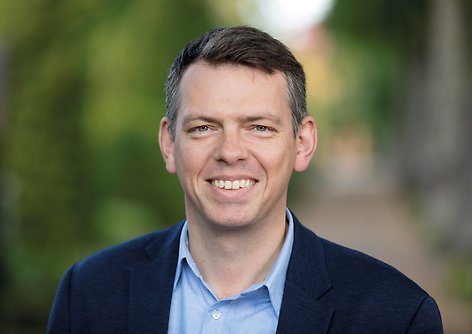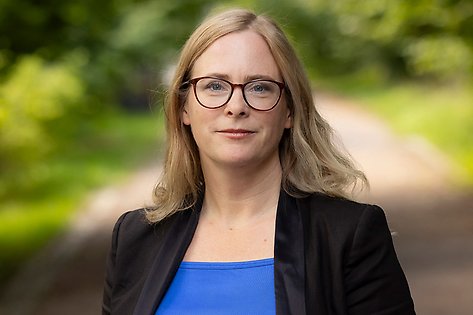Million SEK grant to IGP researchers from the Sjöberg Foundation
Tobias Sjöblom has together with Beatrice Melin at Umeå University been awarded SEK 30 million to identify proteins in the blood that can be used for early detection of cancer. Marika Nestor has been granted SEK 18 million for a research network that will develop antibody-based radiotherapy for cancer.
Early detection of cancer

Tobias Sjöblom. Photo: Mikael Wallerstedt.
The earlier a cancer is detected, the more likely it is to be cured. One promising strategy for early detection is to use blood tests to find biomarkers consisting of proteins or other factors that indicate whether cancer is present somewhere in the body.
In the project “Developing a precancer atlas – a blueprint for early detection of cancer”, the researchers plan to identify superior diagnostic protein biomarkers in blood plasma. Tobias Sjöblom will lead the part of the project carried out in Uppsala and here the researchers will evaluate protein biomarkers through screening of home-sampled blood and within the diagnostic flow of the healthcare system. The identified biomarkers will then be developed via clinical trials into blood tests that can be used in healthcare to detect different types of cancer as early as possible.
“We have previously discovered promising biomarkers for early cancer detection and the grant from the Sjöberg Foundation enables us to collect and investigate whether blood samples taken at home are a viable route for future cancer diagnostics,” says Tobias Sjöblom.
Antibody-based radiotherapy

Marika Nestor. Photo: Mikael Wallerstedt.
In molecular radiotherapy the radiation source is transported to, and accumulated on, the cancer cells. Targeting the tumour can be done using antibodies that specifically recognise and find the tumour cells. This way, the therapy is also suitable against metastatic cancer, which is often difficult or impossible to treat.
In the granted project led by Marika Nestor, a network of researchers and physicians from different parts of Sweden will translate antibody-based molecular radiotherapy from the laboratory to the clinic. They already have a working radio-labelled antibody that will be evaluated in a clinical trial early in the project. They will also explore how antibody modification and the use of other radioactive substances can be utilised to improve treatment outcome and reduce the risk of side effects.
“Receiving a Flagship grant from the Sjöberg Foundation is an honour and a chance to make a real difference for cancer patients in Sweden. I am incredibly grateful for this opportunity and look forward to working with our national network to drive antibody-based molecular radiotherapy forward as a breakthrough treatment method. Together, we will drive innovation and clinical translation forward, with the hope of improving outcomes for cancer patients. Thank you to the Sjöberg Foundation for this invaluable support!” says Marika Nestor.
Kerstin Henriksson
Facts
The Sjöberg Foundation was established following a donation by businessman Bengt Sjöberg. The purpose of the foundation is to “promote scientific research with a primary focus on cancer, health and the environment”. In 2023, the foundation announced funding for “Flagship projects”, where collaborative projects between different universities could receive support of up to SEK 100 million over ten years.
The presently awarded grants are to be used between 2025 and 2027, and after an evaluation of the projects’ progress, they may be awarded a further SEK 70 million for the following seven years. The projects will be carried out in collaboration with research colleagues at Uppsala University, Umeå University, Karolinska Institutet, University of Gothenburg, KTH Royal Institute of Technology, Linköping University, Lund University and SicLifeLab, as well as Uppsala University Hospital, Norrland University Hospital, Karolinska University Hospital and Sahlgrenska University Hospital.
